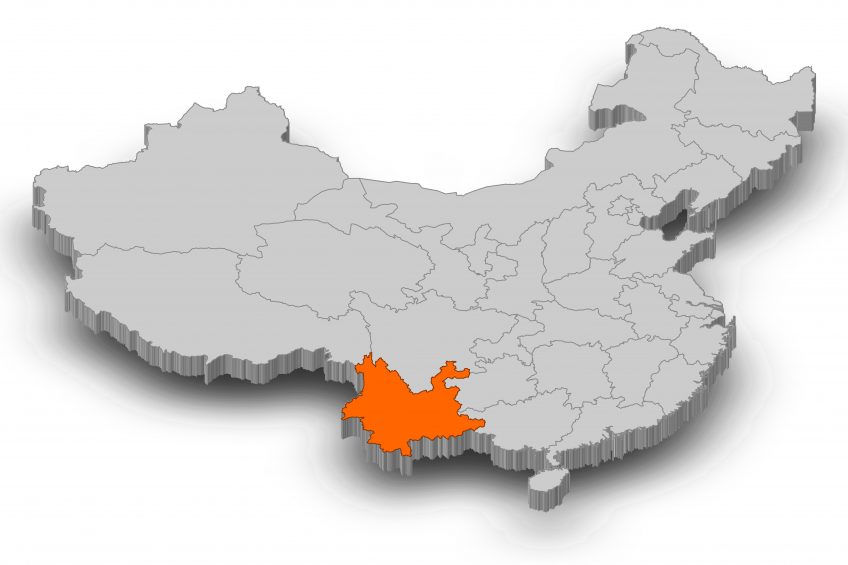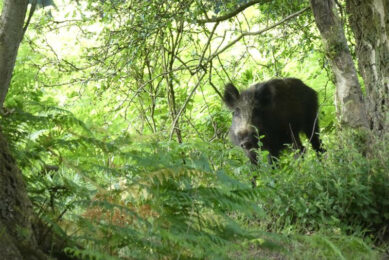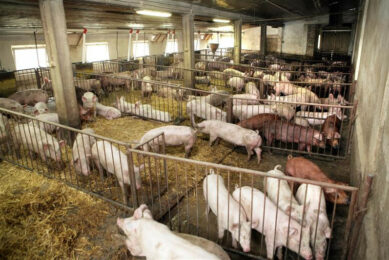ASF China: South affected; Japan finds virus in meat

African Swine Fever (ASF) has descended to also affect more areas in the south of China, including Yunnan, Hunan and one more in Zhejiang. In addition, Japan has reported the finding of ASF virus in imported meat at an airport. The batch has been destroyed.
This weekend, the Chinese authorities reported about 2 outbreaks on small farms near Zhaotong, Zhenxiong county, in Yunnan province. So far the southernmost outbreak of ASF in China had been near Wenzhou, at about 450 km south of Shanghai.
Yunnan close to major pig producing areas
Worryingly, this province borders major pig producing province Sichuan. On top, the area provides a lot of pork for the populous province of Guangdong, with major cities like Guangzhou and Shenzhen. In addition, the province also borders Vietnam, Laos and Myanmar, sparking the risk for infection of other countries in South East Asia.
The Chinese Ministry of Agriculture and Rural Areas (MARA) reported that on 2 farms, 298 and 247 pigs respectively had died of the viral disease. This happened on farms with 904 and 353 animals. About 7,000 pigs had to be culled in a 3 km radius around the farms.

How did ASF actually enter China? Read the analysis
ASF outbreaks in Hunan province
In addition, the agricultural ministry also reported 2 outbreaks on a farm in the central-southern province of Hunan, close to the cities Yiyang and Changde. There, in total almost 800 pigs had to be culled due to ASF.
ASF in Zhejiang province
Also more ASF in the province directly south of Shanghai: Zhejiang. Quite a long time after the 1st outbreak on August 17, a 2nd outbreak has been reported near Taizhou, on a farm with over 2,200 animals. In total 56 were found to be infected, Reuters reported.
Pig transport bans and ASF
Unlike the north, so far the country’s south had not been impacted by ASF or subsequent transport bans. The result was that in the north, pork prices have dropped because of oversupply and a decreased demand. In the south, however, the bans in the north caused a shortage, leading to already higher pork prices. Additional pig transport bans can lead to even higher pig prices.

Reuters interviewed Pan Chenjun, senior analyst at Rabobank, and he said: “Now there’s only some provinces that haven’t confirmed any cases but it’s very unlikely that they will be clean. Basically, it’s already everywhere.” That message was confirmed by many experts at the recent Leman China Swine Conference, held last weekend in Zhengzhou, China, where Pig Progress was present.
Pig transport bans lifted
Despite these worrying signals, the Chinese authorities announced the lifting of restrictions related to areas where the viral disease hasn’t officially been reported for at least 6 weeks. The outcome is that in 9 areas, restrictions have been lifted.
In practice, for Jiangsu province, this means that there is officially no ASF any more in this province – hence the colour on the map below is blue instead of orange. As it is still bordering to other provinces with ASF, pigs can still not be transported across provincial borders.
ASF and Chinese pig prices
Reuters also mentioned that the outbreak could have a big impact on pig prices in the next few months, as the country is preparing for the New Year Holiday in February 2019.
A similar message was shared by the Rabobank in its Pork Quarterly Outlook for the 4th quarter of 2018. The bank wrote that “ASF could devastate the Chinese pork industry and add further weight to the structural shift in production. While the official number of animals culled to date is small, relative to the country’s total production, the possibility of a radical change in hog supply over the coming months could impact the international market.”
The bank added that it expects 2018 total imports to exceed those of 2017 and added that it expects ‘another step-up in 2019 of pork imports’, related to a possible supply gap.

Read more about ASF and other diseases in the Pig Progress Health Tool
Japan: ASF found in imported meat
Meanwhile, Japan found ASF in packed pork sausage being carried into the country by a foreigner coming from Beijing on October 1, according to the country’s agricultural ministry.
Japanese national daily The Mainichi reported that the sausage, in a package of 1.5kg, was collected from a passenger arriving in Hokkaido, northern Japan. Genetic testing at an animal quarantine station detected the disease in samples of the product last Friday.
The sausage came in a vacuum pack and had apparently been heat treated, suggesting there is little chance of it being infectious, an official at the ministry said. The newspaper added no domestic cases of virus infections have been reported either. It was not clear where the sausage was made.











